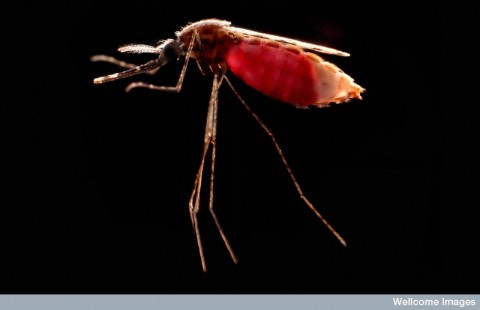Featured F1000Prime Report: developing tools for malaria surveillance.
| 26 November, 2014 | Samuel Winthrop |
|

|
From this month’s batch of F1000Prime Reports, the peer-reviewed open-access review series on emerging themes in biology and medicine, we thought we’d feature a report dealing with one of the deadliest killers in human history: malaria.

Credit: Hugh Sturrock. Wellcome Images
In “Research priorities for the development and implementation of serological tools for malaria surveillance“, James Beeson and colleagues take a look the challenges and opportunities facing governments and NGOs in monitoring this complex disease.
As deadly as this mosquito-borne disease is, there is cause for optimism in this field, as the transmission of malaria is declining in a number of countries. However, this means that malaria surveillance is only increasing in importance, as the potential re-introduction of the disease, the presence of asymptomatic carriers and the location of isolated transmission ‘hotspots’ could thwart the progress made.
In this F1000Prime Report, Beeson et al. review the shortcomings of the traditional malaria surveillance methods (estimating the number of infectious mosquito bite per person per unit of time and the point prevalence of the Plasmodium parasite), which “become less sensitive and relatively expensive as transmission declines”. Techniques such as the antibody-based ‘sero-surveillance’ biomarkers reviewed in here, the use of which had fallen from favour, could see renewed use as the technology improves further.
All of this month’s F1000Prime Reports are freely available below:

Management of colorectal cancer

Mycobacterium abscessus subsp abscessus lung disease: ‘trouble ahead, trouble behind…’

Advances in the management of enuresis

Transfusion medicine as of 2014

Antibiotic prophylaxis and reflux: critical review and assessment

Recent advances in the management of acute bronchiolitis

Novel therapies for open-angle glaucoma

Recent advances in understanding/management of hypospadias
Commentary: Management of hypospadias

Research priorities for the development and implementation of serological tools for malaria surveillance

Transgenerational acclimation of fishes to climate change and ocean acidification

Mechanisms of planar cell polarity establishment in Drosophila

MyD88: a central player in innate immune signaling
The entire back catalog of F1000Prime Reports can be accessed here.

|

